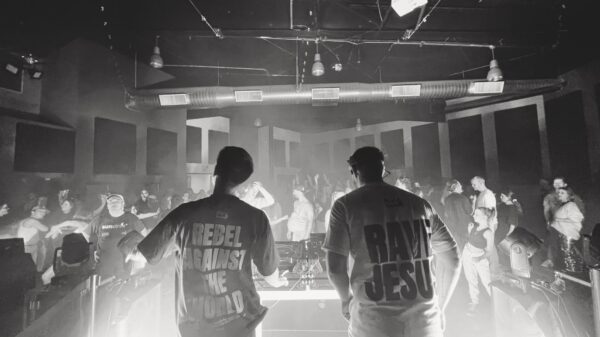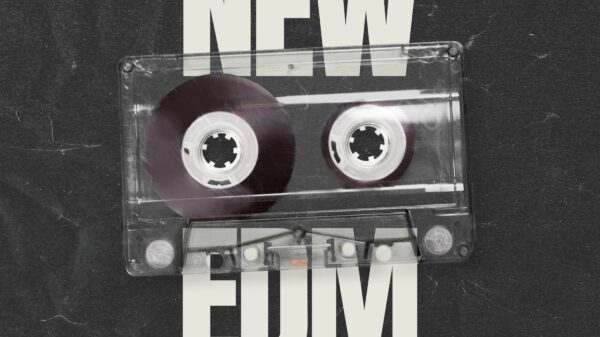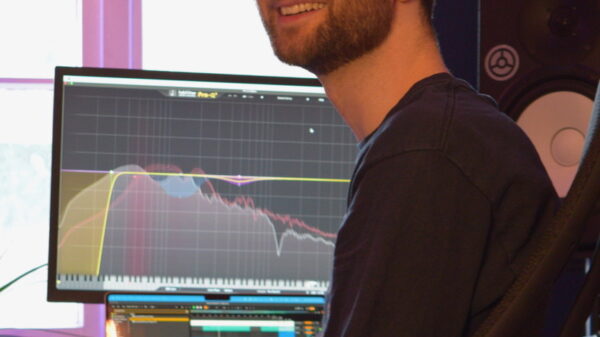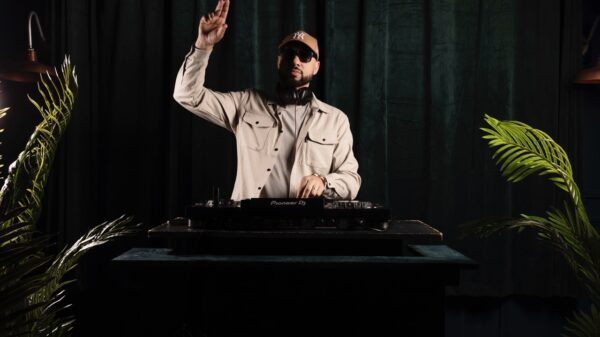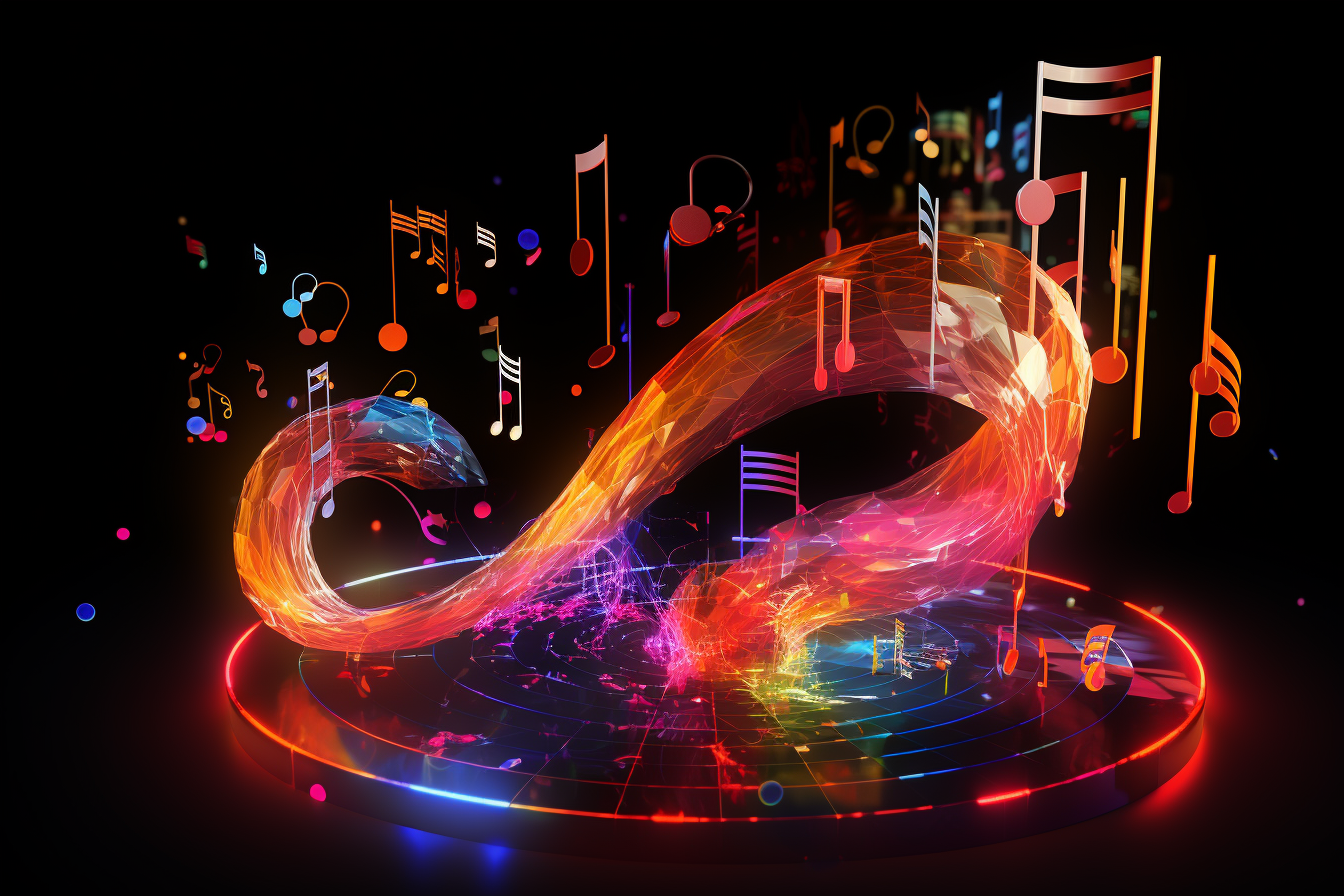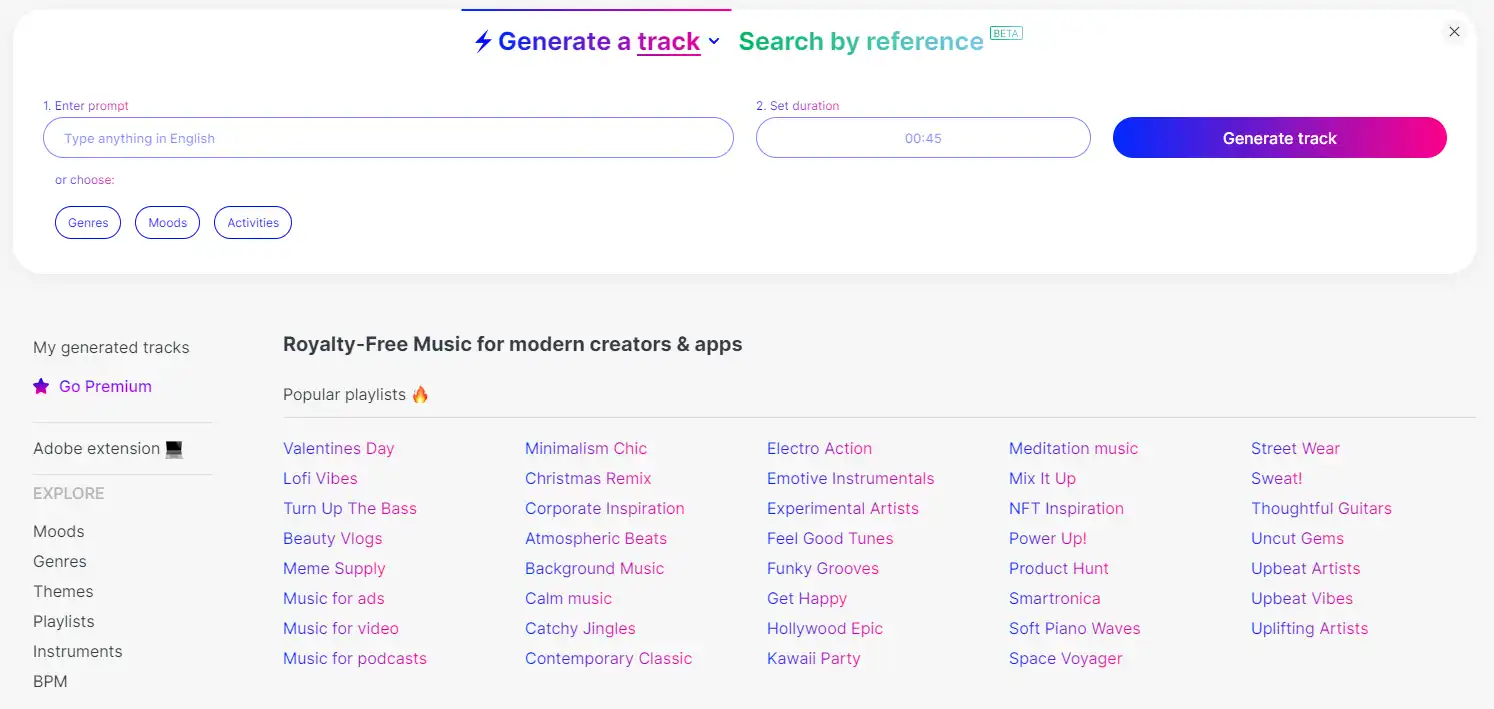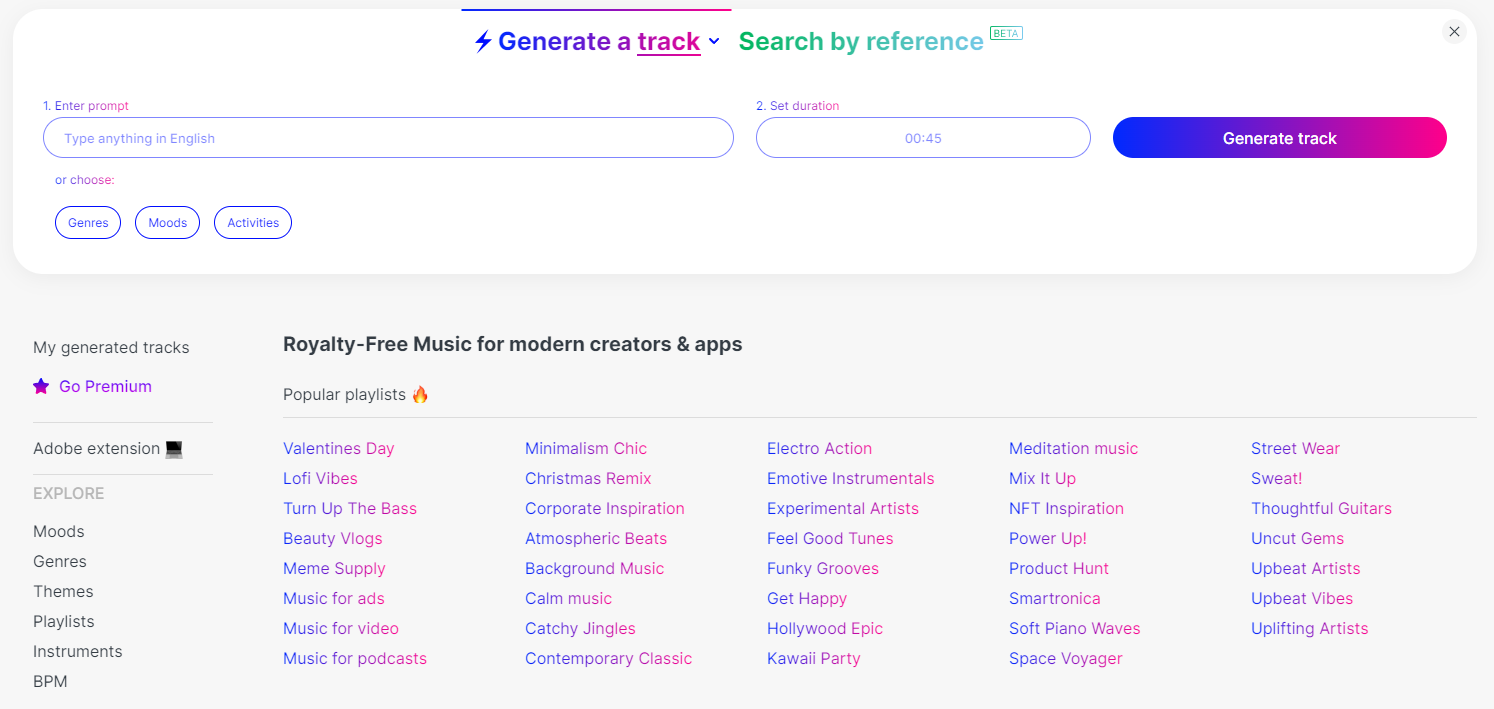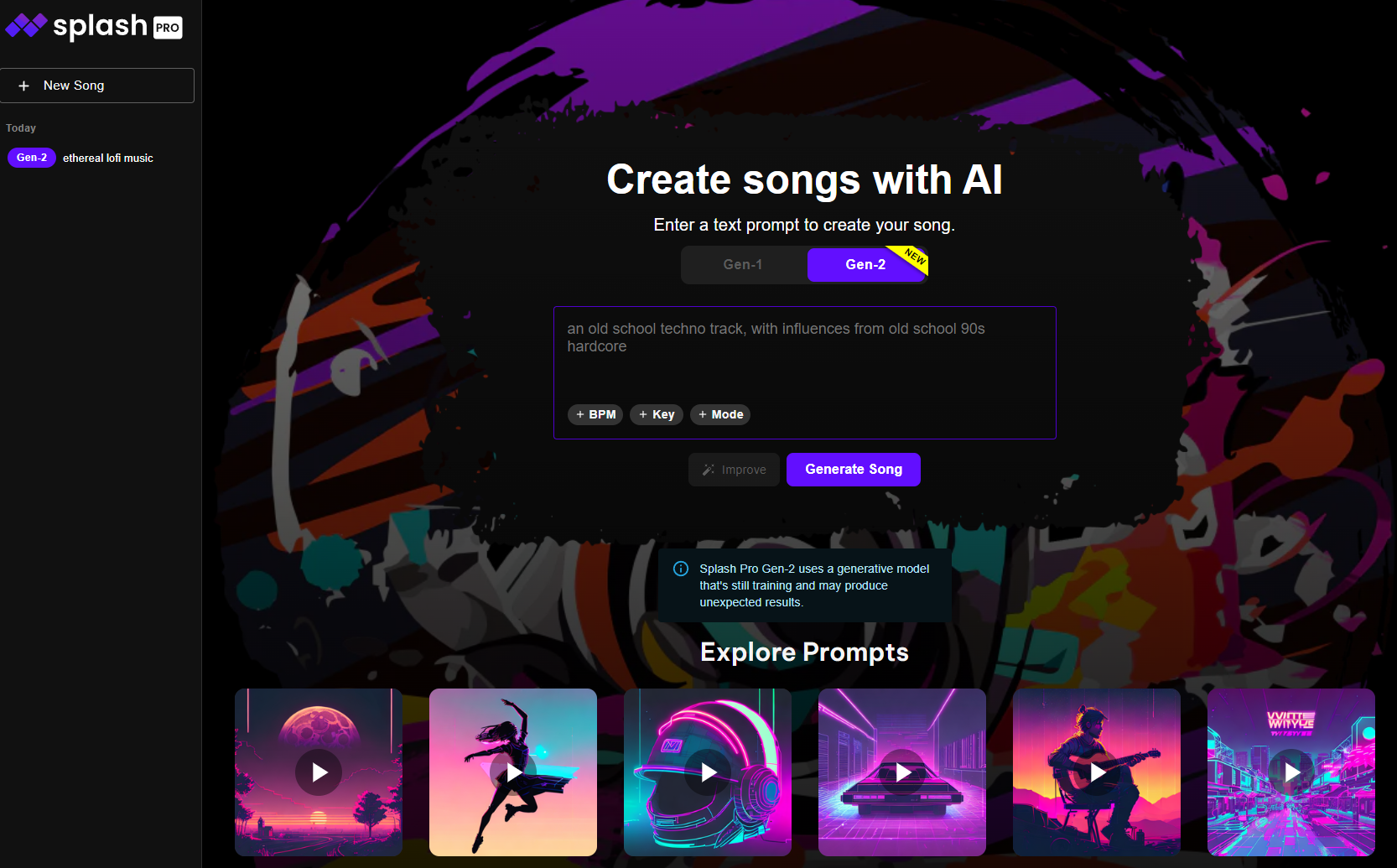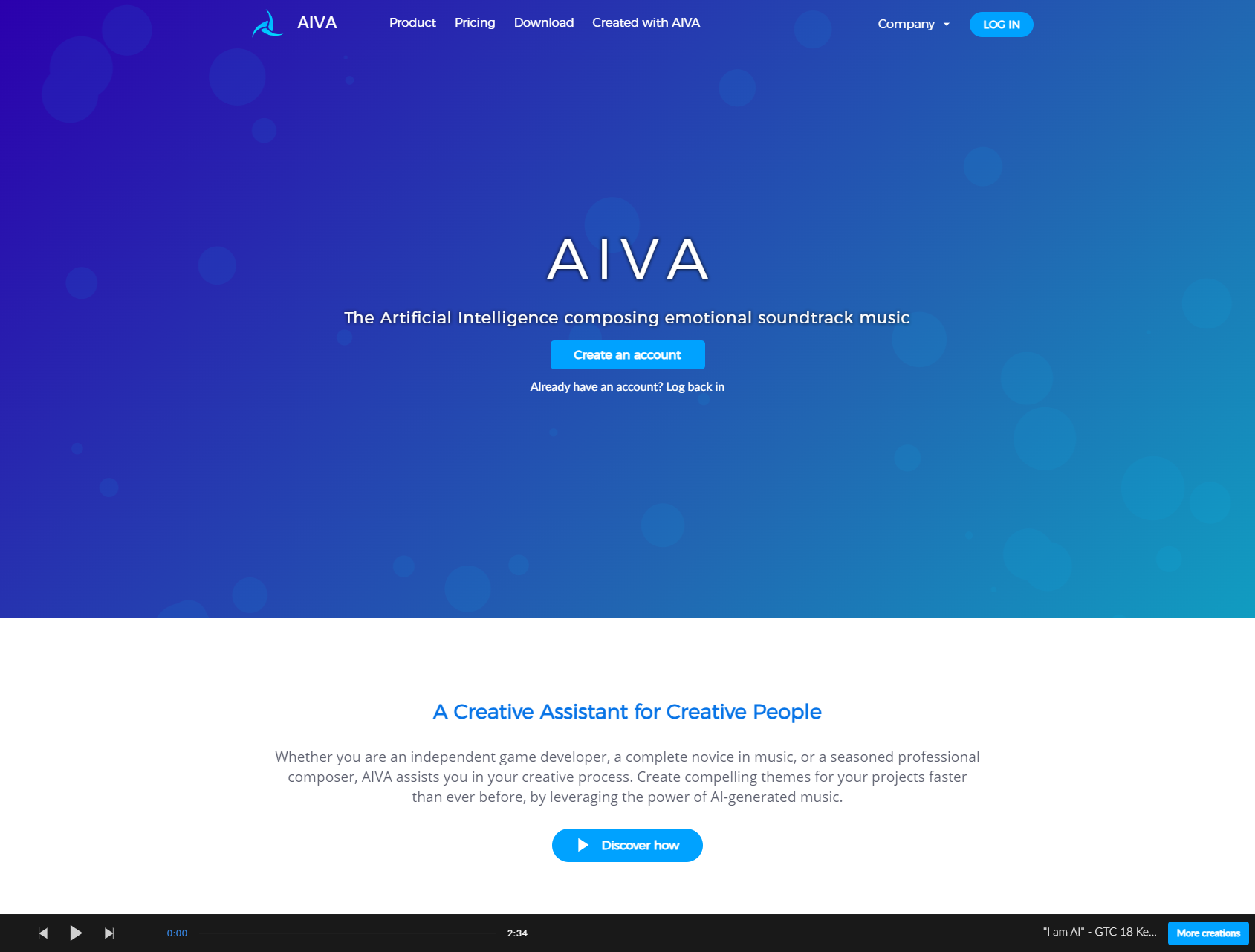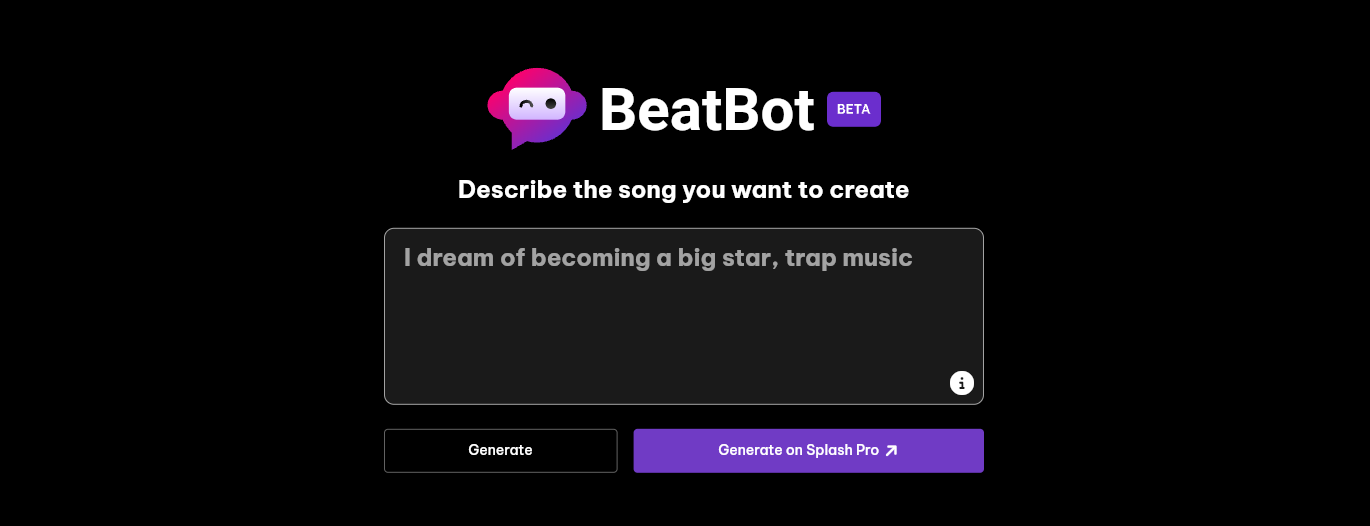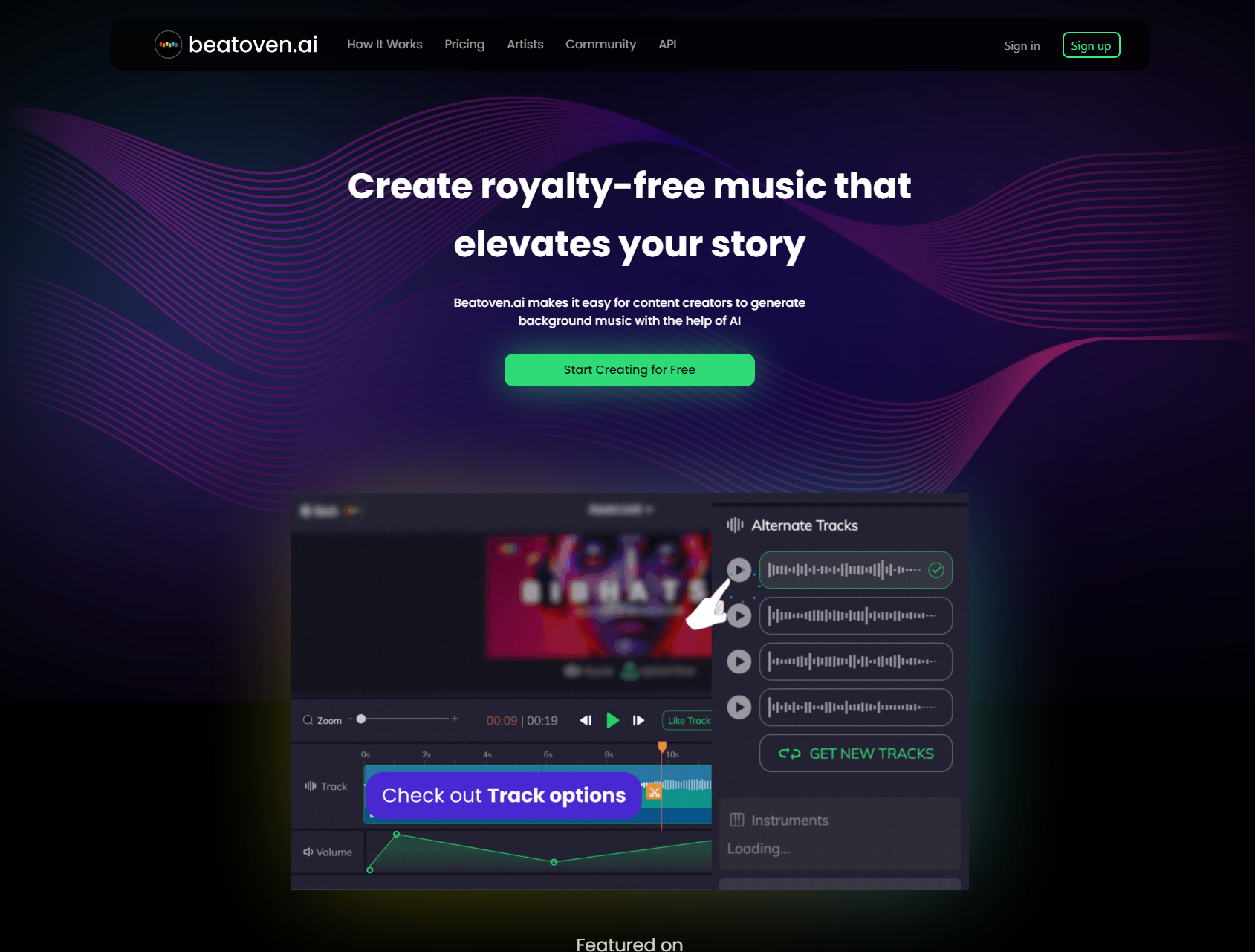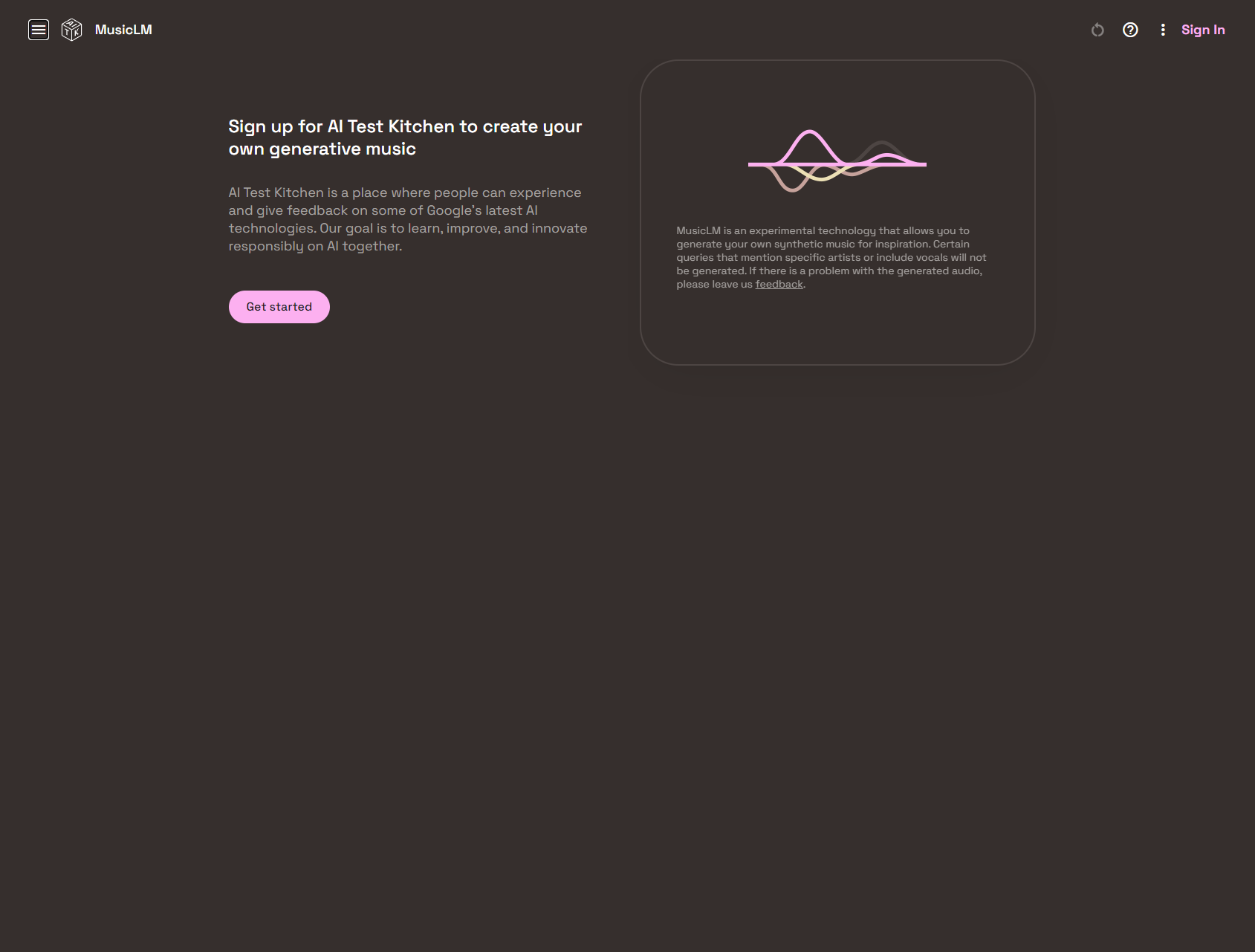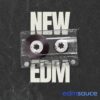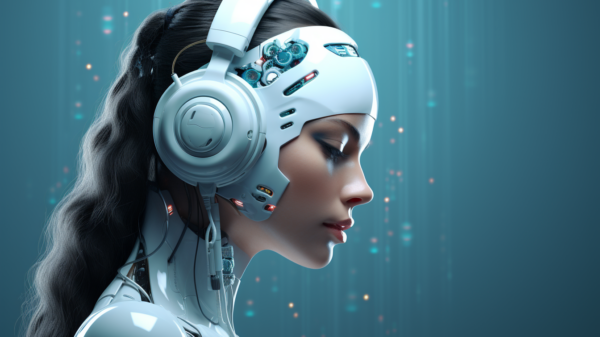Artificial intelligence (AI) has made incredible advances in recent years, with machines now capable of generating high-quality art, text, code and more. One particularly exciting application of AI is in the realm of music creation. Several companies have developed AI systems that can compose and produce original songs, instrumentals and more. In this article, we will explore the top AI music generators and how they work.
What is AI-Generated Music?
AI-generated music refers to songs, instrumentals, and other audio creations that are composed by artificial intelligence algorithms rather than humans. These AI systems are trained on vast datasets of existing music to learn about musical styles, structures, melodies, harmonies, rhythms and more. The AI then uses this knowledge to create original music that resembles human-made compositions.
AI music generators typically rely on neural networks, which are computing systems modeled after the human brain. Through deep learning techniques, the neural nets can analyze data like songs to identify patterns and themes. The system then leverages these learnings to generate new music that shares similarities with its training data.
The results can vary greatly depending on the size and diversity of the training data. AI music generators aimed at mimicking specific artists or genres tend to produce more focused results. Systems trained on large, eclectic music datasets exhibit more creativity and uniqueness in their output. In both cases, AI music provides an endless source of original tunes for listeners to enjoy.
Benefits of AI Music Generation
AI-generated music offers several advantages over purely human-composed works:
- Endless variety: AI systems can produce an unlimited number of songs across different styles and moods. The music never gets repetitive or predictable.
- Fast creation: AI can compose full instrumental tracks within seconds, compared to the hours or days it takes humans. This allows for rapid experimentation.
- Customization: Many AI music platforms allow users to fine-tune the desired length, style, instruments, tempo and more. This makes the music highly adaptable.
- Inspiration: AI songs can spur new ideas for human musicians and composers to build upon. The computer-generated melodies and harmonies may drive fresh creative directions.
- Accessibility: AI eliminates the need for extensive musical training to make quality tunes. Anyone can leverage these tools to bring their musical ideas to life.
- Cost efficiency: Once developed, AI systems can generate infinite music at near-zero marginal cost. This makes music more affordable and widely available.
Of course, AI has limitations relative to gifted human composers. But used properly, it offers musicians powerful creative assistance and casual listeners plenty of enjoyable, original tunes.
7 Best AI Music Generators
| Generator | Description | Strengths | Limitations |
|---|---|---|---|
| Mubert | Procedural music generator creating original, unlimited background music | Massive variety; control mood, length, instruments; commercial licensing | Limited song complexity; no custom lyrics |
| Splash | Creates royalty-free AI music by selecting genre, mood, etc. | Easy for beginners; quality focused on video content | Short samples only; limited creativity |
| Aiva | Composes cinematic, classical, and pop instrumental music | High audio production quality; aims for emotional impact | Requires musical knowledge; no lyrics |
| Beatbot | Generates melodies and drum patterns that users arrange into songs | Easy loop-based songwriting; inspires human creativity | Limited to short samples; for iOS only now |
| Beatoven | Web platform to create AI music by customizing genre, structure, etc. | Intuitive controls; advanced editing features; lyrics support | Vocal quality lacks polish; lyrics dubious meaning |
| MusicLM | Research project by Google producing compelling instrumental demos | High musicality and coherence; innovative training process | Not publicly available; lyrics need work |
| Soundful | Browser-based loop synthesizer utilizing generative ML | Unique collaborative live jamming experience | Loops repetitive; setup requires effort |
1. Mubert
Mubert Render makes original and royalty-free music for your content
Mubert stands out as a trailblazer in the AI music generation domain. It seamlessly marries technology with creativity, offering a fresh perspective on music production.
Key Features:
- Generative music streaming app tailoring music based on user preferences.
- Capability to generate music using simple text prompts.
- A studio platform for artists to harness AI, create music, and even monetize it.
- API integration for personalized music experiences in apps and games.
Best Suited For:
Content creators, app developers, and musicians looking for tailored music experiences. Mubert excels in genres like electronic, pop, and hip-hop.

2. Splash
Splash Music offers an AI music generator focused on beginners and casual users. The web-based platform provides a simple wizard interface to create songs. Users select a genre, mood, instruments, tempo and length. Splash Music's AI then churns out a custom instrumental track matching the provided criteria.
Underneath the friendly interface, Splash Music employs advanced neural networks trained on a diverse catalog of music. Models are fine-tuned on genre-specific datasets to achieve more tailored results within each style, from pop to hip hop. This genre expertise helps the AI deliver creative tracks that sound appropriate within their chosen category.
Splash Music aims to open music composition to everyone through their intuitive guided song creation process. Beginners can easily produce quality instrumental music without complex digital audio workstations or musical skill. More experienced users can utilize it to quickly ideate and experiment with new musical directions. For lightweight consumer music fun, Splash Music makes AI composition highly accessible.

3. Aiva
Aiva is an AI system focused on composing cinematic, classical and pop music. It was originally developed by engineers at the University of Pierre and Marie Curie in 2016, making it one of the earlier pioneers in AI music generation. After further refining the technology, the team launched Aiva as a commercial product in 2020.
Key Features:
- A plethora of presets and music formats.
- Editing capabilities for soundtracks.
- Ability to produce variations of existing songs.
Best Suited For:
Individuals and businesses aiming to craft soundtracks for various media. It's also ideal for those wanting to experiment with different music styles.
Aiva leverages machine learning algorithms trained on a dataset of over 20,000 songs annotated with musical theory and emotions. This allows it to generate tracks with specific musical structures optimized to evoke desired moods and feelings. Users can customize their music by selecting the style, instruments, length, tempo and other attributes. Aiva then delivers a high-quality .WAV file within minutes.
The system aims to make professional-grade music composition accessible to general audiences. It also strives to help human composers speed up their workflow and experiment with fresh ideas. Aiva has produced music across a wide range of genres, from pop ballads to intense trailer soundtracks. Companies like Microsoft have licensed Aiva music for use in productions.
While not as versatile as a human composer, Aiva demonstrates how AI can expand creative possibilities in music. It also shows the potential for human-AI collaboration in the arts, with each bringing complementary strengths.

4. Beatbot
Beatbot is a novel AI song maker that crafts short songs based on user text prompts, integrating Splash sound loops for music and ChatGPT for lyrics.
Key Features:
- Composes short loops and songs from text prompts.
- Ability to add lyrics on top of the AI-generated loop.
Best Suited For:
Individuals keen on experimenting with music creation and creators looking for unique AI-generated music.

5. Beatoven
Beatoven AI strives to make music composition easy and fun while also delivering quality results. The web-based platform allows anyone to create original AI-generated music for videos, podcasts, games, or their own enjoyment. Both free and paid subscription plans are available.
Key Features:
- Advanced music theory integration for unique music creation.
- Customization options for length, genre, mood, and instruments.
- Production-ready music with professional mixing and mastering.
Best Suited For:
Content creators and individuals who want mood-based music without diving deep into the technicalities of music production.
Beatoven's machine learning algorithms study the patterns, rhythms, and changes in existing music to produce new coherent compositions. Users can generate songs by inputting details like genre, mood, instruments, song components and structure. An advanced feature also lets you hum a melody that the AI will incorporate into a new track.
Once generated, users can listen to the raw AI composition or a polished version with added studio production effects. You also have the ability to tweak the track's key, tempo, volumes, and other attributes prior to exporting the final audio file.
For amateur music hobbyists or casual creators, Beatoven provides an intuitive way to make AI-powered music on their own terms. The smart customization and editing features help ordinary users get polished results.

6. MusicLM by Google
MusicLM is Google's foray into the world of AI music generation. Leveraging Google's expertise in machine learning, MusicLM offers a sophisticated platform for creating diverse musical pieces.
Key Features:
- Uses advanced machine learning models to generate music.
- Offers a wide range of genres and styles.
- Integration with other Google services for enhanced functionality.
Best Suited For:
Musicians, content creators, and developers looking for a robust and versatile AI music generator. Given Google's prowess in AI, MusicLM is ideal for those seeking cutting-edge music generation capabilities.

7. Soundful
Soundful offers a blend of simplicity and customization, making it easy to produce royalty-free background music.
Key Features:
- AI algorithms trained with top producers and sound engineers.
- Over 50 genre-based templates.
- Customization options for beats per minute (BPM) and base notes.
Best Suited For:
Producers, content creators, and brands seeking unique, studio-quality music.
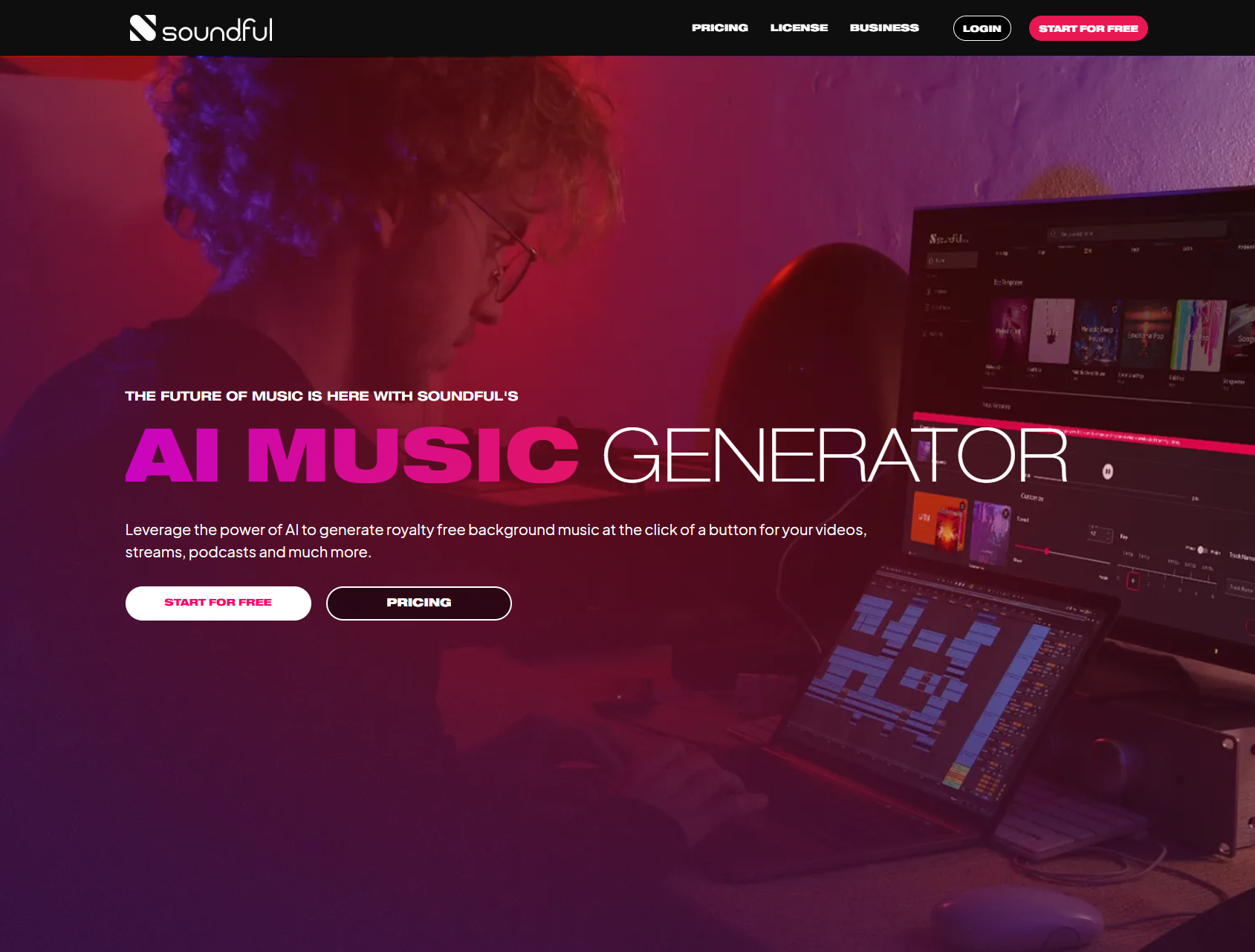
How AI Music Generators Work
The core technology powering AI music creation is a class of machine learning systems called generative adversarial networks (GANs). Here's how GANs work:
- Two neural networks called the generator and discriminator are trained in competition with each other on vast datasets of existing songs.
- The generator tries to create new original music that mimics the training data. The discriminator tries to identify which tracks came from the training set versus the generator.
- Over many iterations, the generator keeps improving its ability to fool the discriminator with its artificial creations. This constant adversarial back-and-forth pushes both models to become highly skilled—the generator at creating convincing music, and the discriminator at detecting fakes.
Once training concludes, the final generator contains strong musical understanding learned from analyzing enormous song datasets. It can then autonomously compose high-quality new tracks in specific styles, moods, and structures.
Different platforms utilize various neural network architectures tailored for music tasks:
- Recurrent neural networks (RNNs) process sequential data like melodies one element at a time using memory cells, making them well-suited for modeling musical patterns that unfold over time.
- Convolutional neural networks (CNNs) identify patterns across audio spectra and are used to generate individual musical building blocks.
- Transformers capture long-range dependencies in sequences via attention mechanisms, allowing AI to compose extended sections with coherence.
Other technical elements like MIDI synthesis, audio editing tools, and post-processing help translate raw AI creations into polished final songs. But generative adversarial models form the key engine powering AI music composition.
Current Limitations of AI Music Generation
Despite major progress, AI music still has some key limitations:
- Lack of true creativity: Current systems exhibit compositional skill but minimal artistic flair or purpose. The music explores new combinations but lacks deeper meaning or intent.
- Limitations with lyrics: AI can generate text that rhymes and scans but struggles with semantics and deeper lyricism. Lyrics may be nonsensical or uninspired.
- Repetition and lack of long-term structure: AI compositions may repeat melodic motifs too often or fail to develop ideas into an extended arc. Pieces feel mechanically glued together rather than organic.
- No conditioning on external context: Unlike human composers, AI systems create in isolation rather than reflecting or responding to cultural trends, current events, individual experiences, and other external stimuli that inspire human art.
- Insufficient critical evaluation: AI lacks meaningful self-assessment of its creations. It cannot refine based on aesthetic or emotional considerations the way composers iteratively self-critique and improve their work.
- Lack of purpose: AI creates music aimlessly rather than to provoke thought, convey meaning, induce emotion, or achieve any other intent beyond demonstrating technical skill.
Essentially, AI music often feels sterile or soulless, like a musical rendering of the “uncanny valley” effect when artificial human likenesses appear strangely inanimate. Until AI develops more sophisticated reasoning, understanding, and reflection abilities, its artistic limits will persist.
The Future of AI Music Generation
AI music creation is still in its early days. Here are some likely developments in the future as the technology evolves:
- More personalized and customizable music based on individual user models trained on their past listening data and preferences
- Integration of multiple neural network architectures like RNNs, transformers, and GANs to combine strengths like long-term coherence, detailed audio rendering, and holistic structure
- Systems that take musical inspiration from non-musical inputs like artwork, literature, the weather, or their own generated creative ideas
- Increased human-AI collaboration with tools that help refine and enhance music produced by people
- Models conditioned on extra context like emotions, events, personalities or visuals to produce more inspired and purposeful music
- Lyrics generation improving via advances in AI language models and training on poetic texts
- Commercial music composed by AIs or in partnership with human musicians
- Use of AI to uncover new musical styles, techniques, and sounds that extend human music traditions
- Automated composition of adaptive game and film scores that dynamically respond to changing environments or scenarios
- Musically creative AI becoming a new art form with outputs appreciated on aesthetic merits versus just technical achievement
While AI music has obvious limitations currently, rapid progress in deep learning foreshadows a future where AIs could possess profound musical creativity, open up new listening experiences, and transform how music is made.
Frequently Asked Questions About AI Music Generation
How is AI music different from stock music libraries?
Stock music refers to pre-composed songs created by human musicians for licensing. AI music is original compositions created on-the-fly by software algorithms. While stock music offers existing songs for reuse, AI systems can generate a vast range of new music that's never been heard before.
Can AI music replace human composers?
Not anytime soon. AI today exhibits technical skill but limited creativity. It lacks human artistic sensibilities, emotions, and cultural understanding needed for timeless musical masterpieces. For now, AI remains a tool for assisting human creativity rather than replacing it outright. Its compositions are often viewed as novel but soulless.
Is AI music copywritten?
Music copyright depends on the specific platform and license. Some AI companies retain copyright, while others grant royalty-free usage rights to users under specific terms. Always check the license for each AI music service to understand usage rights for its outputs.
How long does it take AI to compose a song?
AI music generators can typically produce full instrumental songs within seconds or minutes after entering your desired parameters. However, the model training required beforehand can take weeks or months of compute time depending on dataset size and neural network complexity.
Can you make money from AI-generated music?
Some platforms like Amper and Splash provide commercial licenses allowing you to use AI music in monetized content like YouTube videos or productions. However, most of today's AI compositions may not meet quality standards for selling music outright to consumers or licensing for professional productions.
Will AI put musicians out of work?
AI will not replace human music professionals entirely. Its present limitations in creativity make it strictly a supplementary tool. However, AI may disrupt entry-level music jobs like background scoring. Overall net job loss remains highly uncertain as new human roles leveraging AI music also emerge. Continuous education and adaptation will be key.
Can AI mimic a particular artist or genre?
AI trained exclusively on one musician's catalog (like Beatles songs) or specific genre (like classical music) can certainly exhibit strong stylistic similarities. However, extensive training data is required, and the more narrow the focus, the more susceptible the AI is to repetitive tropes versus fresh ideas. Striking the right training balance is key.
How is AI different from algorithms used in electronic dance music?
EDM algorithms help automate mixing and mastering tasks applied to existing music. AI music platforms generate original compositions from scratch. EDM systems enhance and polish manual compositions. AI systems create wholly new songs based on models of fundamental musical principles learned through deep neural networks.
Can AI music show emotion?
Today's systems have limited capacity to evoke genuine emotion. They can mimic superficial musical cues associated with moods like fast tempos for excitement or minor chords for sadness. But music that profoundly moves listeners requires deeper creative intent and reflection which AI lacks. Emotional AI music remains a major frontier.
Conclusion
AI music represents an exciting new frontier for both music listening and creation. Systems today exhibit impressive technical skill but still lag human composers in terms of deep creativity and emotional resonance. However, rapid progress suggests AI could begin augmenting and collaborating with people to enhance how music is produced and experienced.
For now, AI music platforms like Amper, Aiva, and Splash provide an easy way for casual users to play with AI composition. The proliferation of these tools democratizes music creation beyond just trained experts. As the technology matures, AI promises to catalyze radical shifts in music discovery, consumption, and production.




